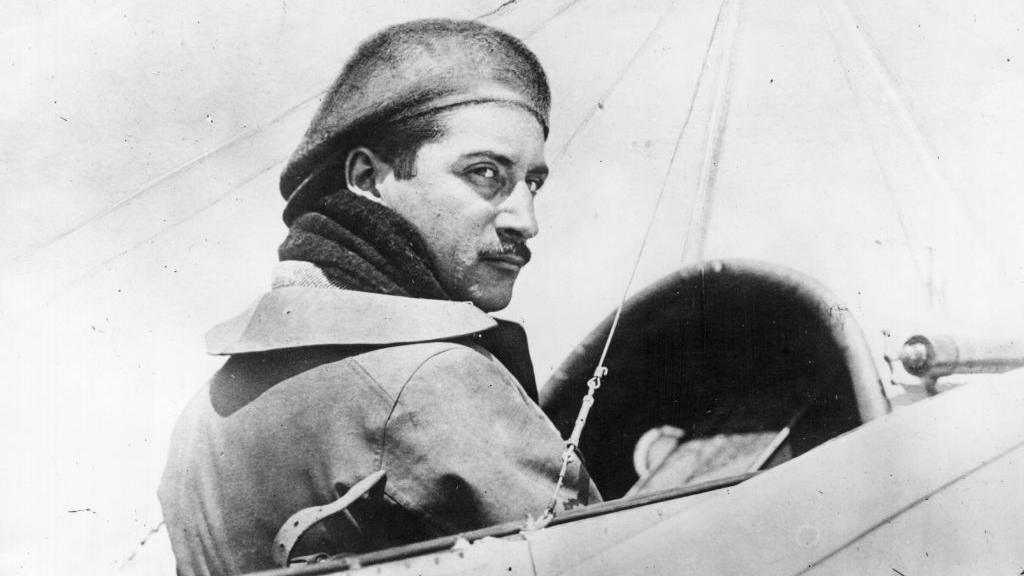Who was Roland Garros?
- Published
The French Open is often referred to as simply 'Roland Garros' - but who was he?
Eugene Adrien Roland Georges Garros is regarded as a French war hero.
Garros was a pioneering self-taught pilot, who made the world's first flight across the Mediterranean Sea before becoming a World War One fighter pilot.
The French aviator also developed the first single-seater fighter plane with on-board machine guns.
When Garros was taken prisoner by German soldiers, they used his ideas to adapt their own aircraft. He managed to escape in 1918 but was shot dead later that year - a day before his 30th birthday.
A decade later, Paris' newly built tennis stadium was named in Garros' honour.
Why was the French Open named in Garros' honour?

Roland Garros attended HEC business school and founded his own car dealership at the age of 21
The French Open is officially called Les Internationaux de France de Roland Garros - translating to the 'French Internationals of Roland Garros'.
The stadium it is played in was built - in part - because of the success of 'The Four Mousquetaires (Musketeers)'. They won the Davis Cup in 1927.
It was named after Garros following request from Stade Francais president Emile Lesueur - a former classmate of his.
When Lesueur ran to be the chair of the Stade Francais, Garros had been among those to show their support for him.
This article is the latest from BBC Sport's Ask Me Anything team.
Get in touch
Send us your questions
What is Ask Me Anything?
Ask Me Anything is a service dedicated to answering your questions.
We want to reward your time by telling you things you do not know and reminding you of things you do.
The team will find out everything you need to know and be able to call upon a network of contacts including our experts and pundits.
We will be answering your questions from the heart of the BBC Sport newsroom, and going behind the scenes at some of the world's biggest sporting events.
Our coverage will span the BBC Sport website, app, social media and YouTube accounts, plus BBC TV and radio.